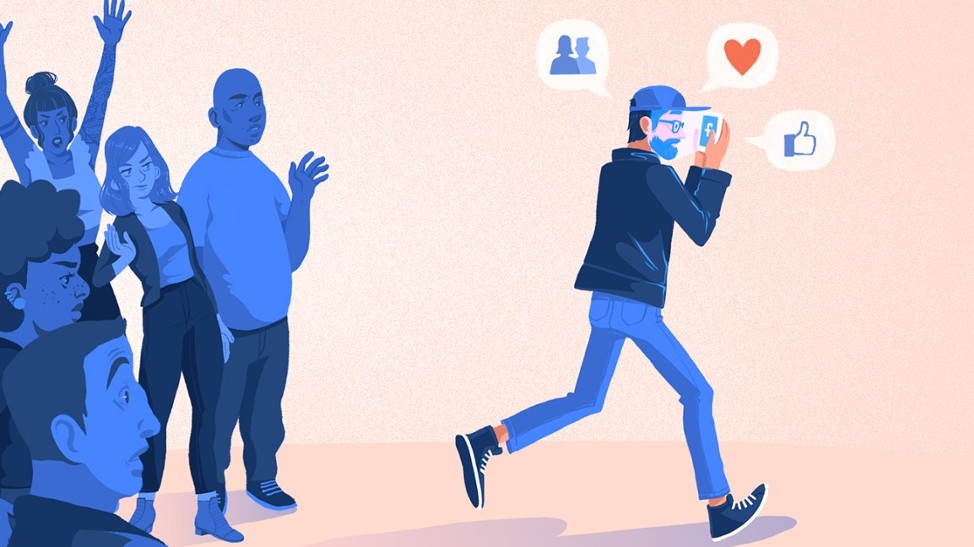How Social Media Influences Self-Esteem
The intersection between social media and self-esteem is a crucial topic in today’s digital age, as millions of people increasingly rely on social platforms for connection, validation, and even self-definition. Social media has transformed from a mere communication tool into a space where individuals can broadcast the best parts of their lives, curate identities, and compare themselves with others.
This dynamic can deeply affect self-esteem, both positively and negatively. In this article, we’ll explore how social media shapes self-worth, the mechanisms behind its impact, and the ways in which individuals can cultivate healthier online habits.
The Psychological Effects of Comparison on Self-Esteem
Social media creates an ideal platform for comparison. Users constantly see snapshots of other people's lives, often their achievements, happiest moments, and successes. This "highlight reel" effect encourages individuals to measure their own lives against the seemingly perfect lives of others, which can lead to:
When users see people whose lives appear “better” or more exciting than theirs, it can lower their self-worth, leading to feelings of inadequacy.
While seeing someone “doing worse” can momentarily boost confidence, it may reinforce an unhealthy sense of self by relying on others' misfortune for self-esteem.
According to studies, these comparisons can have profound impacts on mental health, with frequent social media use often correlating with lower self-esteem and higher levels of anxiety and depression. On the other hand, individuals who mindfully curate their feeds and focus on positive, supportive communities are more likely to experience a boost in self-confidence.
The Power of Validation: Likes, Comments, and Followers
Social media platforms are designed with feedback mechanisms, including likes, comments, and follower counts, which are powerful reinforcers of behavior. These elements can influence self-esteem by reinforcing certain types of content or behavior, creating a cycle of validation-seeking:
When a post receives a high number of likes or positive comments, it often boosts the user’s self-worth temporarily. This phenomenon, however, can be short-lived, leading to a dependency on external validation.
On the other hand, posts that receive little engagement can lower self-esteem, as users may interpret low interaction as a sign of unpopularity or rejection.
This dynamic makes self-worth contingent upon external feedback rather than intrinsic confidence, creating a reliance on others’ approval to feel validated. The emphasis on metrics like likes and comments can lead to distorted self-perception, where individuals feel their worth is tied to their online presence rather than who they are offline.
The Rise of “Filtered” Reality and Its Impact on Body Image
With the advent of photo editing tools and filters, social media often presents an unrealistic standard of beauty and lifestyle. Users can edit photos to enhance their appearance, creating an idealized, often unattainable version of themselves. This widespread practice has two key impacts on self-esteem:
Exposure to unrealistic beauty standards can lead to a negative body image, as users internalize the belief that they need to look a certain way to be valued or appreciated. For many, the discrepancy between their real self and their “filtered” self can cause self-esteem issues, making them feel inadequate in their unaltered form.
When individuals frequently engage with content that showcases “perfect” bodies, it may lead them to believe these looks are the norm, pressuring them to conform to similar standards. Studies show that these comparisons, especially among younger users, can contribute to eating disorders, body dysmorphia, and other mental health challenges.
Some platforms are now working to counter these issues by allowing users to disclose when filters are used, but the overwhelming presence of idealized imagery continues to contribute to a pervasive culture of comparison and self-criticism.
Strategies to Cultivate a Healthier Relationship with Social Media
While the effects of social media on self-esteem can be negative, there are ways to harness it for positive outcomes. By setting healthy boundaries and fostering a mindful approach to social media, individuals can mitigate its impact on their self-worth.
Studies suggest that reducing social media usage, especially during stressful times, can lessen its impact on self-esteem. Setting a specific time for social media use can help maintain balance.
Follow accounts that promote positivity, authenticity, and inclusiveness. Avoid content that fosters comparison or negativity.
Instead of comparing yourself to others, practice self-compassion by focusing on your own achievements and personal growth. Remember that social media often displays the best parts of people’s lives, not the whole story.
Strengthening real-life connections, engaging in hobbies, and spending time with loved ones are all ways to build confidence and self-esteem without relying on virtual feedback.
Social media can be a powerful tool for connection, inspiration, and self-expression when used mindfully. Recognizing its potential to impact self-esteem and taking steps to minimize harmful effects can foster a more positive, fulfilling online experience.
References
- Social Media and Self-Esteem
- The Highlight Reel Effect
- Social Comparison Theory and Social Media
- Impact of Social Media on Body Image
- Effects of Filtered Reality on Mental Health
- The Role of Validation in Social Media
- Positive Use of Social Media
- Digital Well-being and Mental Health
- Strategies for Healthy Social Media Use
- Self-Compassion and Resilience





































































